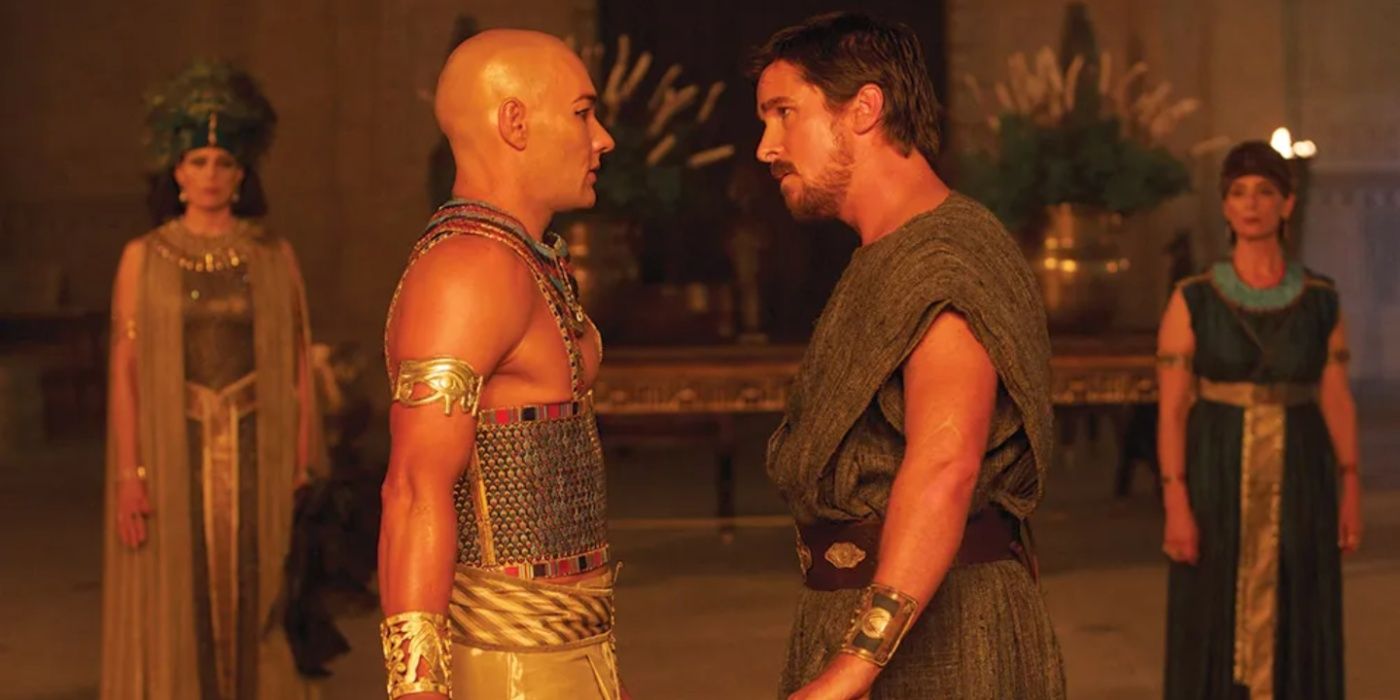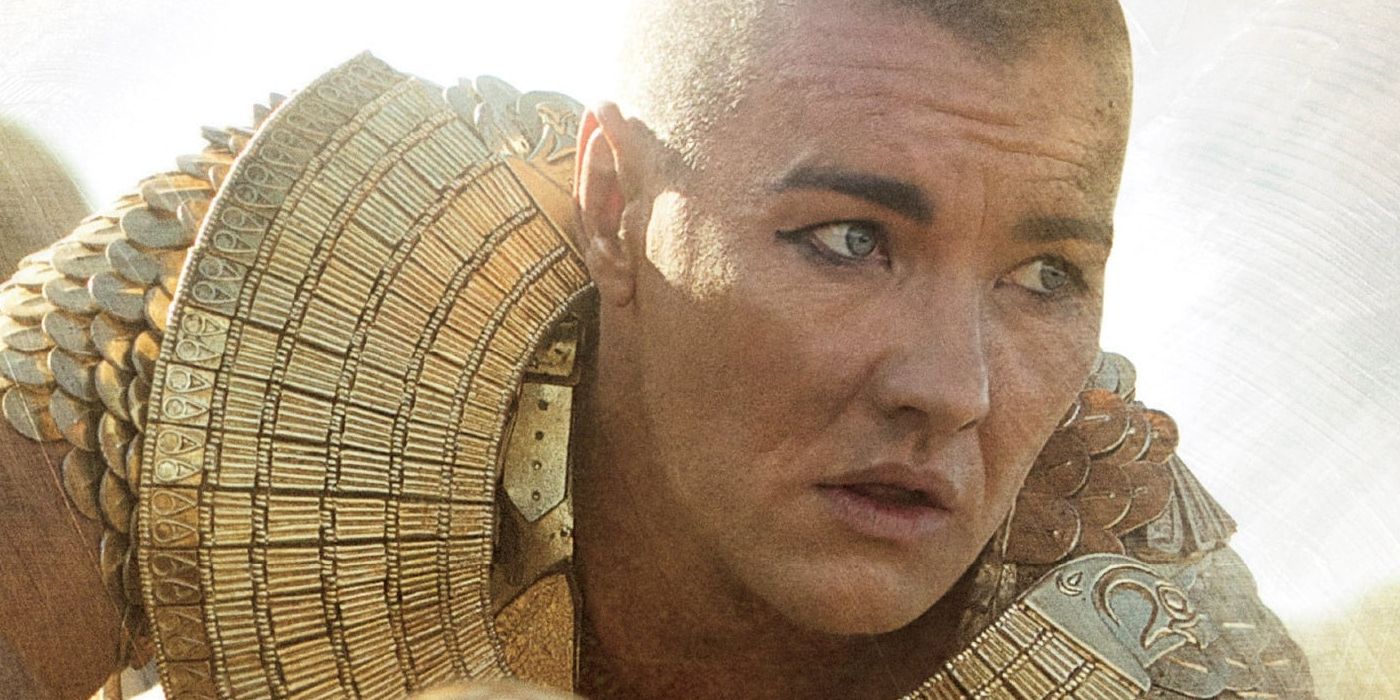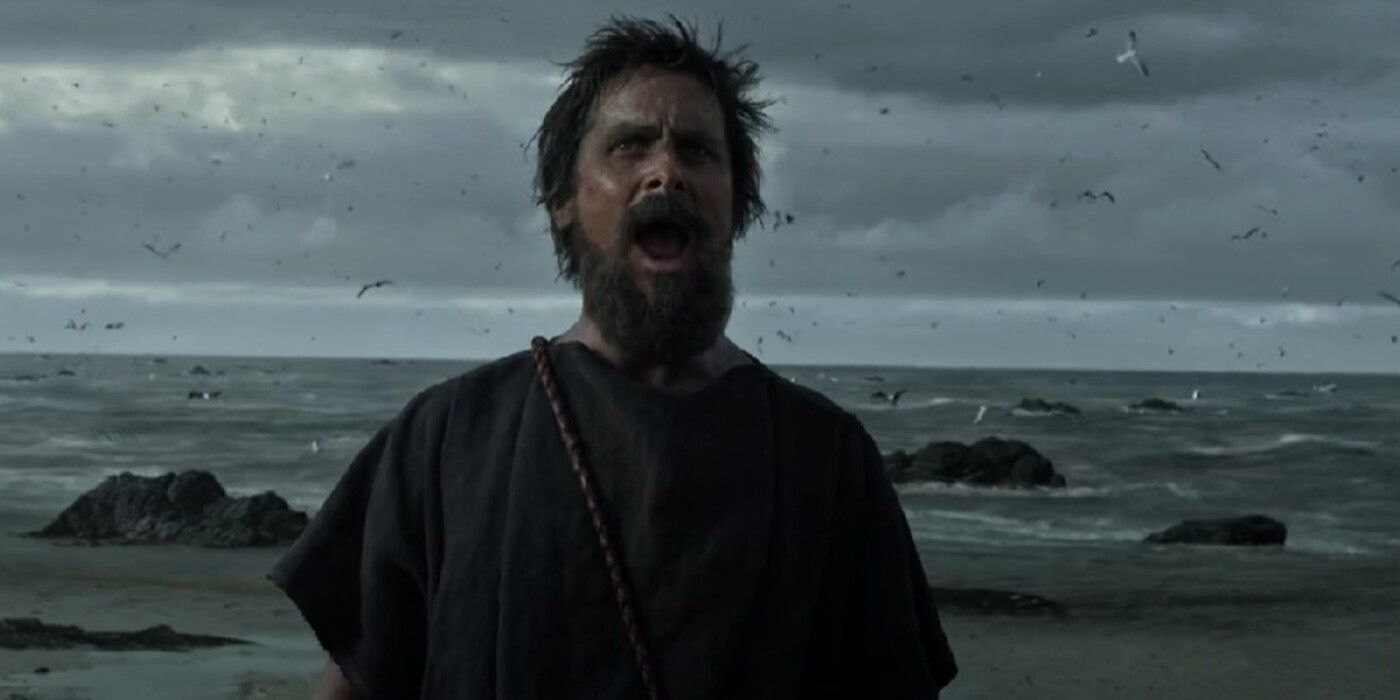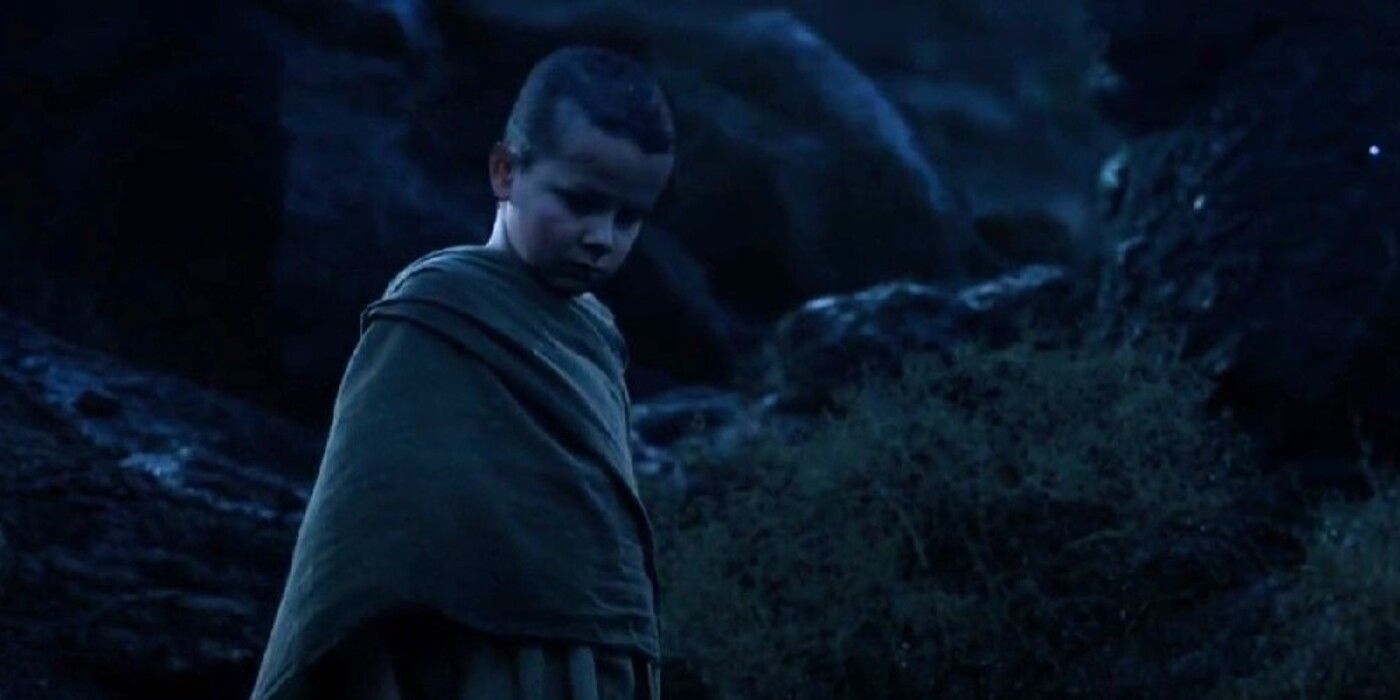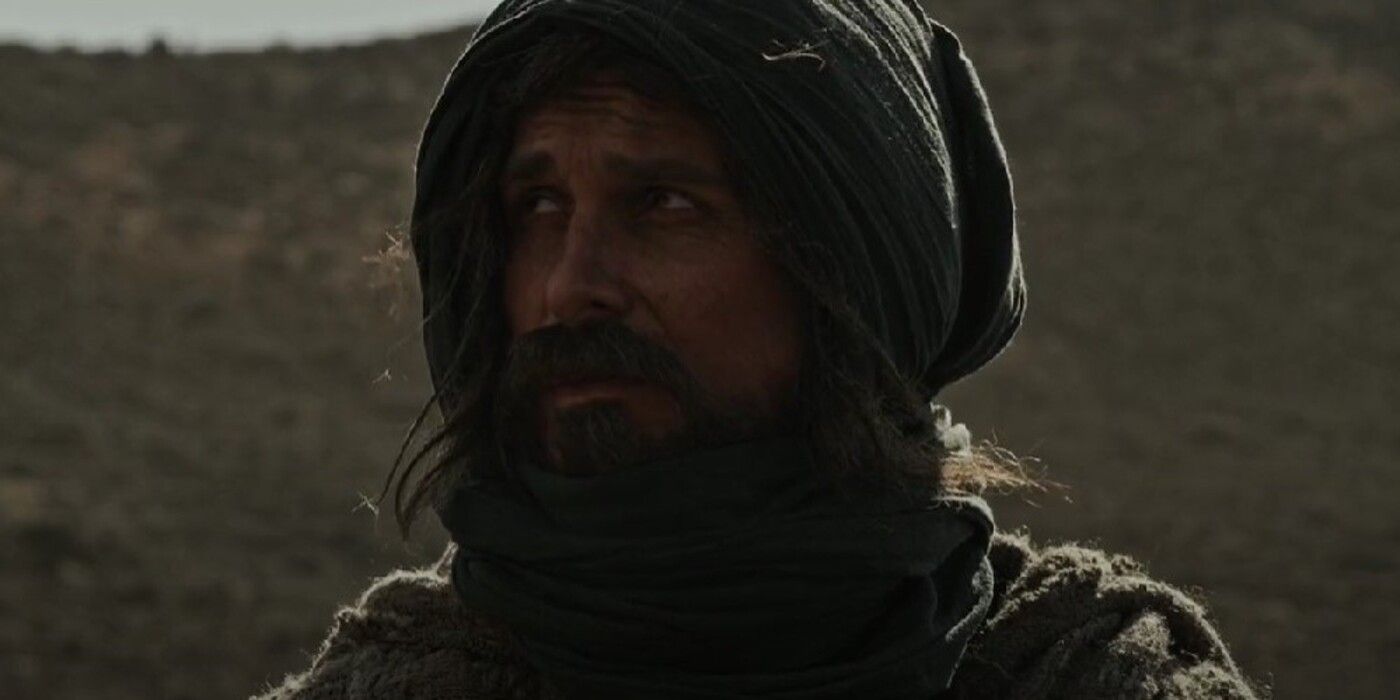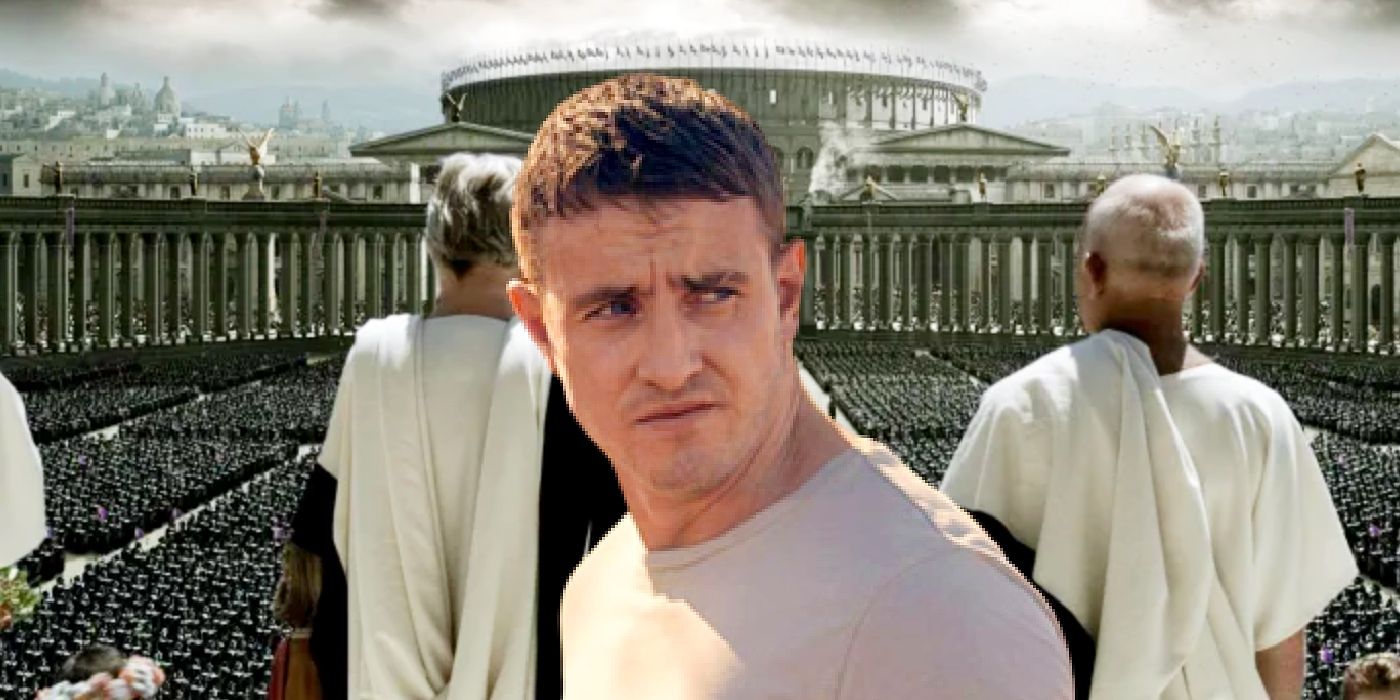
The Epic Ending of Exodus: Gods and Kings

A detailed exploration of the ending of Ridley Scott's biblical epic, Exodus: Gods and Kings, and its creative liberties.
The Unconventional Retelling
Ridley Scott's biblical epic, Exodus: Gods and Kings, offers a unique and unconventional retelling of the classic story of Moses and the Hebrew slaves. In this cinematic rendition, Christian Bale portrays the iconic prophet Moses, who, after being raised as an Egyptian royal, is tasked by God to lead the Hebrew slaves out of Egypt. Joel Edgerton takes on the role of the ruthless Pharaoh Ramses II, creating a compelling dynamic between the two symbolic brothers. However, Scott's portrayal takes significant creative liberties, deviating from the traditional biblical narrative.
Ramses II (Joel Edgerton) and Moses (Christian Bale) staring each other down in Exodus Gods and Kings
The depiction of Moses as a lover rather than a fighter, and the reinterpretation of the parting of the Red Sea, are just a few examples of Scott's departure from the original text. These deviations are put on full display in the action-packed second and third acts of the film, offering a new perspective on the well-known biblical tale.
Joel Edgerton as Ramses II looking scared in Exodus Gods and Kings
The Climactic Ending
The conclusion of Exodus: Gods and Kings unfolds in a series of dramatic events, culminating in a visually stunning and emotionally charged climax. After a series of devastating plagues and the loss of Ramses II's only child, the horrified Pharaoh allows the Hebrew slaves to leave Egypt and return to Canaan. However, Ramses soon changes his mind and leads a pursuit to recapture the fleeing slaves, setting the stage for a thrilling chase across the desert.
Christian Bale as Moses gives a speech at the Red Sea in Exodus Gods and Kings
The pivotal moment at the shores of the Red Sea, where Moses faces doubt and uncertainty, gives way to an awe-inspiring miracle as the sea rescinds, allowing the Hebrews to cross. This departure from the traditional biblical depiction of the parting of the Red Sea adds a new layer of intrigue to the film's climax, captivating audiences with its unexpected twist.
Isaac Andrews as Malak in Exodus Gods and Kings
The film's portrayal of God's final message to Moses, the aging of the protagonist, and the defeat of Ramses offer a thought-provoking reinterpretation of the biblical narrative, sparking discussions about faith, leadership, and the human experience.
Christian Bale as Moses with head scarf on in Exodus Gods and Kings
Interpreting the Ending
The ending of Exodus: Gods and Kings raises intriguing questions about faith, power, and destiny. The unconventional portrayal of Ramses II's motivations, the reinterpretation of the parting of the Red Sea, and the symbolic significance of Moses' aging add layers of complexity to the narrative. While some audiences may find the creative liberties refreshing and thought-provoking, others may view them as departures from the traditional biblical account.
Christian Bale as Moses in the middle of battle in Exodus Gods and Kings
Ultimately, Exodus: Gods and Kings presents a compelling and visually stunning conclusion that invites audiences to reconsider the timeless story of Moses and the Hebrew slaves. Whether viewed as a bold reimagining or a departure from the original text, Ridley Scott's epic ending leaves a lasting impression, sparking discussions and interpretations that resonate long after the credits roll.
